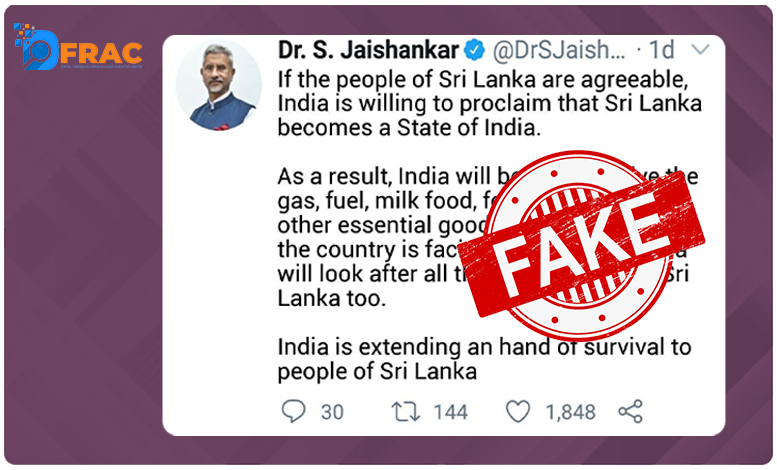Users are claiming that ‘Jana Gana Mana’ was written in praise of King George V of England. A user named Arun Kumar Gaur posted on Facebook with a picture of a book, “Everyone knows that the Indian national-song was virtually a eulogy anthem written by Rabindranath Tagore in praise of George V. The entire anthem is available in the book “Geet-Panchati” by Rabindranath Tagore published by The Delhi Sahitya Akademi, Delhi. The entire anthem is available in the book “Geet-Panchati” by Rabindranath Tagore which was published by The Delhi Sahitya Akademi, Delhi, and the original copy is presented for all of you to see. Which can be easily read by zooming. I have received this copy courtesy of Brother Krant M L Verma Ji. #GaurYoung”
Rameshwar Basene Facebook has shared a letter written by senior BJP leader Subramanian Swamy, in which he has demanded the Prime Minister to change the national anthem. There are mainly three points of this post:
On November 26, 1949,the Constituent Assembly adopted the national anthem “Jana-Gana-Mana” without any voting.Swami supported subhash chandra boss ji’s suggestion and without tampering with its tune, 95% of the words should be kept the same, only 5% of the words should be changed which was written in honor of British King George V. From time to time, voices have been raised against the so-called national anthem| One of them was Rajiv Dixit who put the truth of the so-called national anthem in front of the country.
Tagore received the Nobel Prize for writing the national anthem praising the British, which was given in the name of Gitanjali.

Rajiv Dixit’s speech on YouTube channel Technical Ayurveda has been uploaded on June 4, 2019. This YouTube channel has about four and a half million subscribers.
Similarly,there are other social media users who have posted with similar claims.

Fact check:
To investigate this claim, we did a simple search on Google. We got many reports on this. According to The Lallontop‘s report Rabindranath Tagore wrote the first draft of “Jana Gana Mana” in Santiniketan in 1908.
According to thecrediblehistory.com run by historian and author Ashok Kumar Pandey, the controversy over the national anthem “Jana Gana Mana” is almost as old as it is. It was sung before the second day’s work began at the Congress session in Calcutta on December 27,1911.
Why did this controversy started?
According to thecrediblehistory.com, to understand this, it is necessary to look at the political situation at that time. George V became the new British monarch and in December he travelled to India. Delhi was made the capital instead of Calcutta. Also, the decision to divide Bengal was withdrawn. In such a situation, the second session of the Congress session of Calcutta The day was scheduled to welcome the visit of the British Monarch as a courtesy. It is known that till that time the Congress had not demanded the independence of the country.

The controversy over the national anthem was caused by the English media reporting, without understanding, that Tagore had written a song in praise of George V.The reason for this may also be the singing of a song dedicated to George V by Ramanuj Chaudhary soon after Jana-Gana-Mana at the same event.
The report states that the basis of this allegation was the reports of the Anglo Indian English Press.For example, on December 28,the newspaper The Englishman reported that the convention began with the singing of a song specially composed by Rabindranath Tagore to honour the emperor.Going a step further, The Statesman Bengali poet Rabindranath Tagore sang a song sung by him to welcome the emperor. Such misleading reports used to be published in the pro-British Anglo-Indian press about the events in India. thecrediblehistory.com has quoted an article in Scroll as saying that The Sunday Times has given Rabindranath the creator of Vande Mataram and Jana Gana Mana called a hindi song.
According to the BBC report, this was clearly published in ‘Amrit Bazar Patrika’ the next day. The magazine said the day began with a prayer composed by Gurudev Rabindranath Tagore at the Congress congregation.

According to thecrediblehistory.com,the newspaper The Bengalee had published an accurate report on this: “The annual session of the Congress began with a song composed by the great Bengali poet Rabindranath Tagore.Then a resolution was passed expressing credibility to the emperor. Then a troupe of children sang a song expressing reverence to Emperor George V. ”
Since then, there has been a controversy over the national anthem whether Tagore wrote the song in praise of the British.There was a demand that “Bharat BhagyaVIDHATA” should be removed from the national anthem because ‘Bharat Bhagya Vidhata’ he has said in praise of George V. However, according to the BBC Hindi report, Tagore made it clear in 1912 that ‘Bharat Bhagya Vidhata’ can have only two meanings: the people of the country, or the almighty upper one — whether he is called God, whetherdev. Tagore wrote a letter in 1939, “I would consider it my insult to answer those who brought me to this stupidity.
thecrediblehistory.com has written that Pulin Bihari Sen wrote a letter to Rabindranath in 1937, seeking to know if the song had any connection with George V. Replying to him, Taggar wrote, “That year the arrival of the Emperor of India was being organized. A friend of mine, who is reputed in the government, had made a special request for the emperor’s praise.
Along with being awestruck, anger also arose in my mind. In response to that, I announced the victory of that Bharat Bhagya Vidhata in the song Jana Gana Mana, in the fall-abhyudaya-bandhuar-pannatha, the chirasathi of the travelers who have been running from age to age, who are the inner paths of the people. My royal friends also understood that those human destiny chariot drivers of ages could not be the fifth or sixth george under any circumstances. ”
How Jana Gana Mana was vocalized:
Irish poet James H. Cousins invited Tagore to Andhra Pradesh in 1918-19. Tagore sang Jana Gana at a gathering of students on February 28 on his request. It has been so much liked that Cousins’ wife Margaret later composed its tune. 1930 Tagore recited the song to the orphaned children of pioneers commune in Moscow during a visit to the Soviet Union.
In 1937, Subhas Chandra Bose first proposed Jana Gana Mana as the national anthem. On July 5, 1943, the formation of the Azad Hind Fauj was announced and on the same day Jana Gana Mana was sung as the national anthem for the first time.
So, this is how Jana Gana Mana was made, national anthem:
No decision was taken about the national anthem at the time of independence in 1947. In those days, apart from Jana Gana Mana, “Vande Mataram” and “Saare Jahan Se Achcha” were honored as national songs. Soon after independence, the Indian delegation, which arrived there for a United Nations event, was requested for a national song. The delegation approached the Government of India and advised Jana Gana Mana, which the government accepted. Discussions about the national anthem continued in the country.In the opinion of experts, jana gana mana had the highest singing ability. Moreover, the notion of the country contained in Vande Mataram as a Hindu goddess was not acceptable to many Muslims. It was finally formally recognised as the national anthem in the Indian Constituent Assembly on January 24, 1950. At the same time, it was decided that Vande Mataram will also get the same dignity due to its special role in the freedom movement.
Conclusion :
Rabindranath Tagore did not write the national anthem in praise of the King of England, but when requested to write to him by a friend, he got angry in response, and wrote the song Jana Gana Mana with the same mood. After The Jana Gana Mana at the Calcutta session of the Congress, Ramanuj Chowdhury sang a song dedicated to George V after jana gana mana, it was misleadingly publicized by the English media and Tagore opponents of that time.
Claim: National anthem was written in praise of George v
Claim user: Social media user and others
Fact check : Fake and misleading






